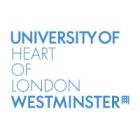Those (natural) laws cannot be circumvented by any amount of piety or cleverness, but they can be understood. Uncovering them should be the highest goal of a civilized society. Not, as we have seen, because scientists have any claim to greater intellect or virtue, but because the scientific method transcends the flaws of individual scientists. Science is the only way we have of separating the truth from ideology, or fraud, or mere foolishness.
Robert L. Park, Voodoo Science (2000), p. 211

